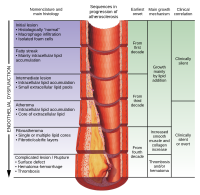
Photo from wikipedia
Infectious diseases are an increasing threat to coral reefs, resulting in altered community structure and hindering the functional contributions of disease-susceptible species. We exposed seven reef-building coral species from the… Click to show full abstract
Infectious diseases are an increasing threat to coral reefs, resulting in altered community structure and hindering the functional contributions of disease-susceptible species. We exposed seven reef-building coral species from the Caribbean to white plague disease and determined processes involved in (i) lesion progression, (ii) within-species gene expression plasticity, and (iii) expression-level adaptation among species that lead to differences in disease risk. Gene expression networks enriched in immune genes and cytoskeletal arrangement processes were correlated to lesion progression rates. Whether or not a coral developed a lesion was mediated by plasticity in genes involved in extracellular matrix maintenance, autophagy, and apoptosis, while resistant coral species had constitutively higher expression of intracellular protein trafficking. This study offers insight into the process involved in lesion progression and within- and between-species dynamics that lead to differences in disease risk that is evident on current Caribbean reefs.
Journal Title: Science Advances
Year Published: 2022
Link to full text (if available)
Share on Social Media: Sign Up to like & get
recommendations!